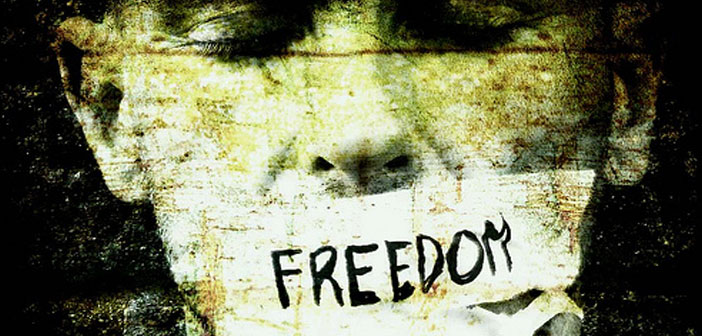There are choices in life, but the independent chooser is an illusion. When one sees something clearly, one doesn’t choose; one acts. So what is the basis of right action? This conundrum and question go to the heart of the problem of freedom and determinism.
What is human freedom? Does it even exist? “In order for us to have radical freedom, it looks as if we would have to postulate that inside of each of us was a self that was capable of interfering with the causal order of nature…capable of making molecules swerve from their paths,” says University of California philosopher John Searle in his book, “Minds, Brains, and Science.”
Freedom has no meaning if determinism is the law of the universe. And determinism can even account for the element of chance, since quantum physics is a function of probability. But determinism is false if there is an element of ongoing creation in the cosmos.
Philosophers often make the mistake of directly applying the laws of nature to the consciousness of humankind. “Science  allows no place for freedom of the will, and indeterminism in physics offers no support for it,” Searle states rather dogmatically in an ostensibly open inquiry into freedom. Linking physics and consciousness, he rhetorically asks, “Is it ever true to say of a person that he could have done otherwise, all other conditions remaining the same?”
allows no place for freedom of the will, and indeterminism in physics offers no support for it,” Searle states rather dogmatically in an ostensibly open inquiry into freedom. Linking physics and consciousness, he rhetorically asks, “Is it ever true to say of a person that he could have done otherwise, all other conditions remaining the same?”
Obviously not in Searle’s view, since “all behavior is determined in such a way that it couldn’t have occurred otherwise, all other conditions remaining the same.”
This is a huge claim, one that is predicated on a limited and mechanistic view of the universe. That view, first formulated by the 18th century mathematician and astronomer Laplace, is encapsulated this way by Searle: “If an ideal observer knew the positions of all the particles at a given instant and knew all the laws governing their movements, he could predict and retrodict the entire history of the universe.”
This premise obviously contains a great deal of accuracy, since it is at the heart of the scientific enterprise, without which we would not have knowledge about nature and the human body, enabling, as one example, the astonishing advancements of modern medicine. But is it the truth?
Einstein demonstrated, and nuclear weapons prove, that energy and mass are interchangeable. Therefore, notwithstanding the sub-sub-atomic smashings of the Hadron Collider, it’s a fundamental mistake to see the universe as composed of ‘particles.’
The other mistake is to deny the creative element in nature. Even if “an ideal observer knew the positions of all the particles at a given instant and knew all the laws governing their movements,” s/he could not predict the future of the universe with certainty, both because the observer is conditioned, and because there’s wild card—ongoing creation in the cosmos.
Obviously there is significant determinism in nature, and significant determinism in consciousness as we usually know it. A greedy disposition will ineluctably give rise to greedy actions. There is no sovereign arbiter in us that decides whether to be greedy or not on a given day, despite what we ‘choose’ to believe.
But just as there is a creative element in nature, there is a creative element in human consciousness. Not just in art, but with respect to insight in consciousness. Insight is creation, though paradoxically, it can only be released and awakened through negation of conditioned consciousness. So can sufficient insight be released within the individual to meet the crisis of humankind, which is the crisis of consciousness itself?
When philosophers speak of determinism with regard to human behavior, they’re really talking about conditioning, not the natural order. And the actions of the chooser, which are synonymous with the self, are determined by our conditioning.
In other words, the chooser is always conditioned, never free. If we persist in the illusion of ‘I choose,’ AI will soon be making all our choices, while letting us believe we’re still in control.
So the decisions that the chooser makes are always determined by conditioning. But is there an action available to the human being that is not determined by conditioning? Yes, one can have a direct perception and insight in the moment of the correct and fitting thing to do.
That’s why it’s essential to act, as much as possible, from listening and stillness, which allows insight and intelligence beyond knowledge to imbue the mind and brain. Such action is the basis of freedom and right action.
Freedom can therefore be defined as the state of being in which one does not act out of one’s programming but is freeing oneself from it through non-accumulative insight and learning. But what brings that about?
Self-knowing and passive observation of the movement of thought/emotion ends the tyranny of conditioning and programming in the individual, at least for the time being. Free of conditioning and the choosing self, the human being awakens true consciousness.
The quiet mind is free because it is not operating from conditioning. As such, it participates, creatively and imperfectly, in the development of consciousness.
Martin LeFevre

